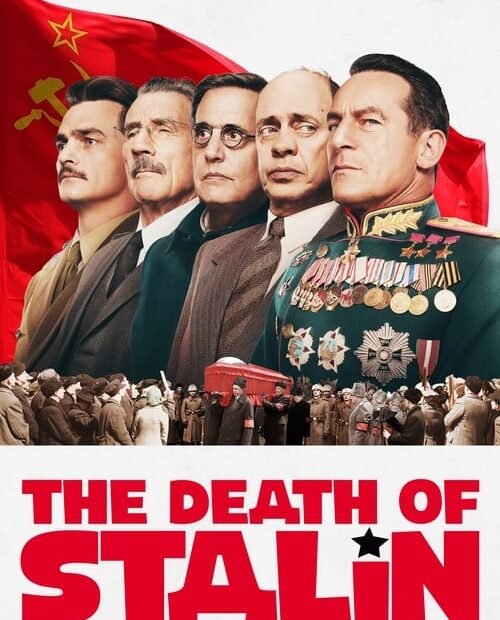The Death of Stalin: A Hilariously Dark Satire on Soviet Shenanigans
Welcome to the chaotic world of the Soviet Union in 1953, where the only thing more dangerous than a bad haircut is a power struggle after the sudden demise of the big man himself, Josef Stalin. Spoiler alert: if you thought your family gatherings were awkward, you haven’t seen anything until you’ve watched the Politburo try to decide who’s going to wear the crown (or the fur hat) after their leader kicks the bucket.
Picture this: Stalin drops dead after a massive stroke, and just like that, the party is on. His henchmen, who are about as competent as a group of cats trying to herd themselves, scramble to figure out who gets to sit in the big chair. We’ve got Nikita Khrushchev, played with a delightful mix of cunning and cluelessness, who’s ready to step over bodies (literally) to get to the top. Then there’s Lavrentiy Beria, the secret police head, who’s got more skeletons in his closet than a Halloween store. Spoiler: he’s not as charming as he thinks.
The movie is a masterclass in dark comedy, where the political games are so cutthroat you’d think they were auditioning for a reality TV show. The power struggle is less about policy and more about who can outwit, out-scheme, and outlast the others. You’ve got people faking tears at Stalin’s funeral while plotting the next round of backstabbing. It’s like a family reunion where everyone’s trying to outdo each other’s sob stories, but instead of awkward small talk, you’ve got assassination plots.
As the chaos unfolds, we see the rise of Khrushchev, who’s basically the underdog of the Soviet hierarchy. He’s got to dodge Beria’s sinister plans like a contestant on a game show, all while trying to keep his own neck safe from the chopping block. There’s a particularly hilarious moment where he tries to play nice with the other members of the committee, but the tension is thicker than a Texas BBQ sauce. It’s a comedy of errors that would make even Shakespeare raise an eyebrow.
Then there’s the subplot featuring Stalin’s daughter, Svetlana, who’s just trying to navigate her way through this male-dominated circus. Watching her deal with a bunch of old men who can’t decide if they want to be friends or foes is like watching a cat try to fit into a dog’s world—awkward and utterly hilarious.
As the plot thickens, we get to the climax where it’s a mad dash to see who can secure the most power before Stalin’s body is even cold. The final act is like a game of musical chairs—except when the music stops, someone’s getting sent to Siberia. Spoiler: it doesn’t end well for a lot of them. It’s a darkly humorous look at how power corrupts, and just how far people will go to get a piece of the pie, even if that pie is made of betrayal and deceit.
In the end, The Death of Stalin is a brilliant blend of historical satire and absurdity, reminding us that sometimes the truth is stranger (and funnier) than fiction. So grab your favorite drink, sit back, and prepare for a rollicking ride through the dysfunctional world of Soviet politics—where the only certainty is that nothing is certain, and laughter may just be your best defense against the madness.
In conclusion, if you ever wondered what would happen if a bunch of power-hungry politicians were thrown into a blender of chaos, you’ve got your answer right here. Just remember, in the game of thrones that is Soviet politics, it’s not about who wins; it’s about who survives to tell the tale.
